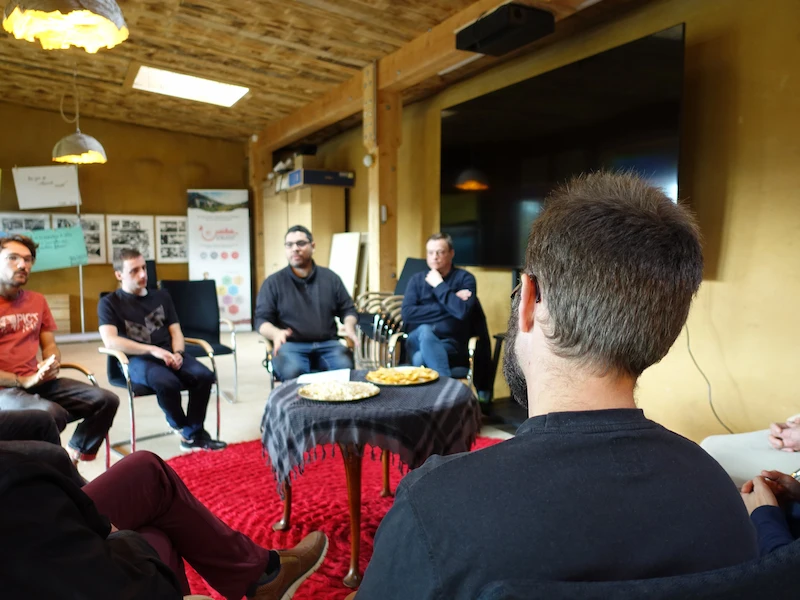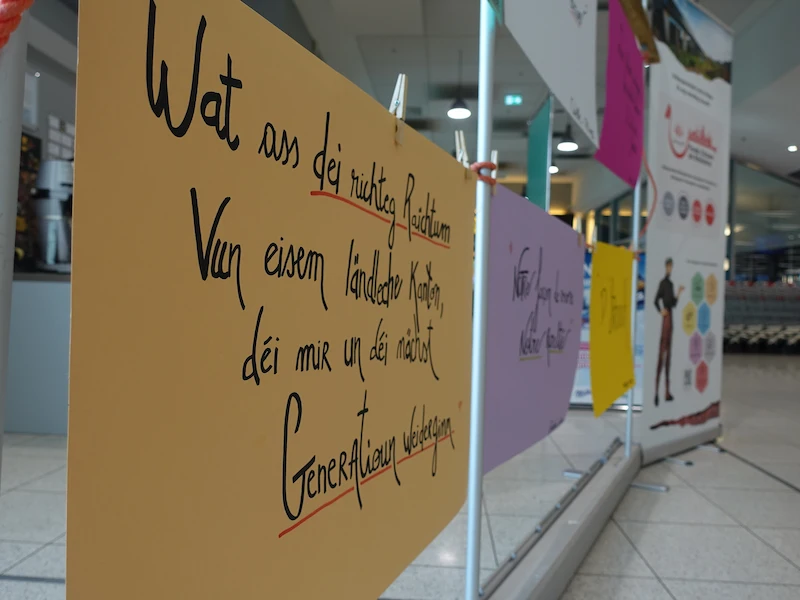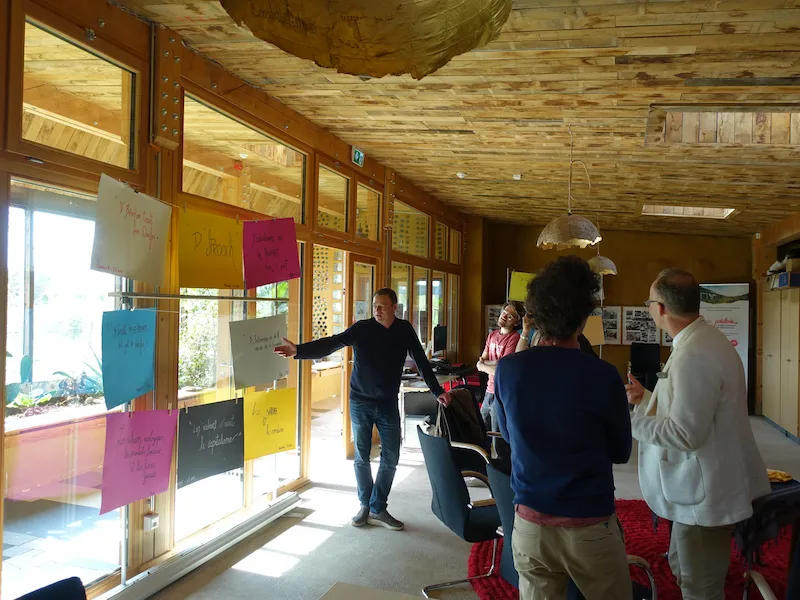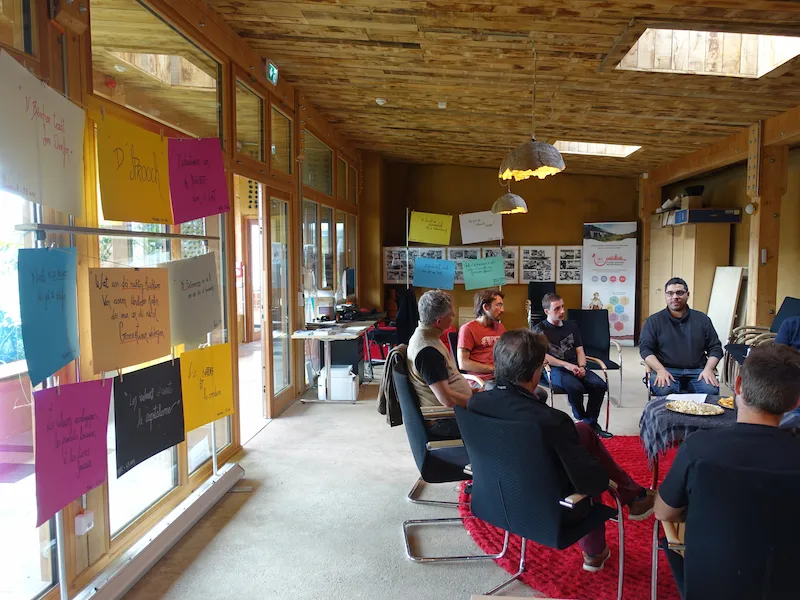

When Redange envisions its resilient future
A Saturday unlike any other at the Äerdschëff
On 18 October, the Äerdschëff in Redange brought together residents, elected officials and experts to discuss a simple question: what if “smart” meant more resilient and regenerative?
In a friendly atmosphere, between citizen discussions and a pizza workshop, everyone was able to share their ideas, concerns and wishes for the future of the canton.
A method for listening and acting together
The discussions were based on the consent-based decision-making method. This process involves asking clarifying questions, identifying objections, and then collectively adjusting proposals until they are ‘good enough to be tested and safe enough to be implemented.’
The result: concrete projects, driven by collective intelligence and local experience.
Conviviality as a driving force
Before diving into these workshops, the participants rolled up their sleeves: each person prepared their own pizza in the Äerdschëff’s mobile oven.
It was a warm moment that perfectly illustrated the spirit of these forums: thinking together and sharing in all simplicity.
The results Smart Energy and Smart Resources
Smart Energy: cooperating for greater energy efficiency and autonomy
The discussions helped transform initial ideas into robust projects:
⚡ Inter-municipal cooperative group for energy renovation: a hybrid structure (non-profit cooperative) bringing together municipalities, tradespeople and citizens, with a users’ committee to include tenants. A rental desk will offer advice, energy efficiency kits and administrative support, while a shared dashboard will monitor projects related to the Climate Pact.
🌞 Cantonal energy hub: extension of the Beckerich and Redange E-community network, bringing together residents, businesses and municipalities in an open cooperative. The focus is on solar energy and local storage, with transparent pricing and open data.
👥 Citizen energy coaching: integrated into the inter-municipal group, in partnership with the Klima-Agence. A local branch in Redange will support households (diagnosis, action plan, practical workshops), while combating energy poverty.
🔌 Cantonal energy cooperative: supported by a governance committee bringing together elected representatives, citizens and experts, this structure manages the local production and distribution of green electricity, with transparency and data sovereignty.
🌍 Cantonal Sobriety Challenge: an inter-municipal competition using existing sensors to measure and reduce consumption in municipal buildings. Schools, associations and residents will be involved in a two-year collective effort.
Smart Resources: repair, reuse and share
In terms of resources and sustainable housing, participants came up with concrete, socially responsible solutions:
🔧 Mobile reuse factory and bank: a mobile facility that travels between municipalities, combining tool loans, repair workshops and educational activities on self-repair and obsolescence. Linked to Repair Cafés, it offers social pricing and flows monitored via the Climate Pact.
🛠️ Inter-municipal resource centre: a non-profit organisation connected to waste collection centres, which collects, sorts, repairs and resells goods at solidarity prices. It functions as a social and educational space, with multi-stakeholder governance and a transparency charter.
🏘️ Solidarity and educational projects: renovations of public or private buildings for social purposes, carried out with reused materials. Supervised by site managers, these projects bring together residents, technical schools and local authorities.
♻️ Cantonal reuse and free market: a rotating event between municipalities, combining donations, exchanges and creativity. Run by local artisans, it includes repair workshops and mini-hackathons, with quantified monitoring of the flow of objects.
What now?
This forum was just the beginning; the next two forums have already been planned:
📅 18 November 2025 from 7pm to 9pm: Expert-Citizen Forum on ‘Regenerative Housing’
The work will be organised around two thematic tables following an optional visit to the Äerdschëff and a participatory pizza workshop:
- Living and building differently – towards a participatory and cooperative eco-hamlet.
- Repair, share and coordinate – a supportive ecosystem for existing housing.
Find out more about this forum.
📅 18 December 2025: Expert-Citizen Forum on ‘Sustainable Mobility’
These successive meetings will enable collective reflection to continue and ideas to be transformed into real projects, promoting the ecological and social resilience of the region.





